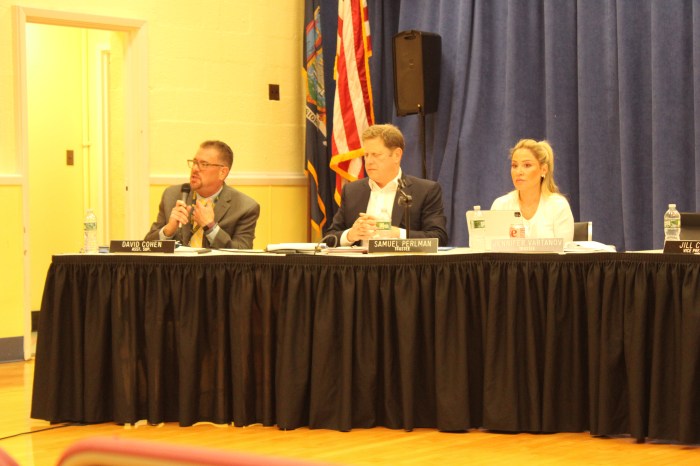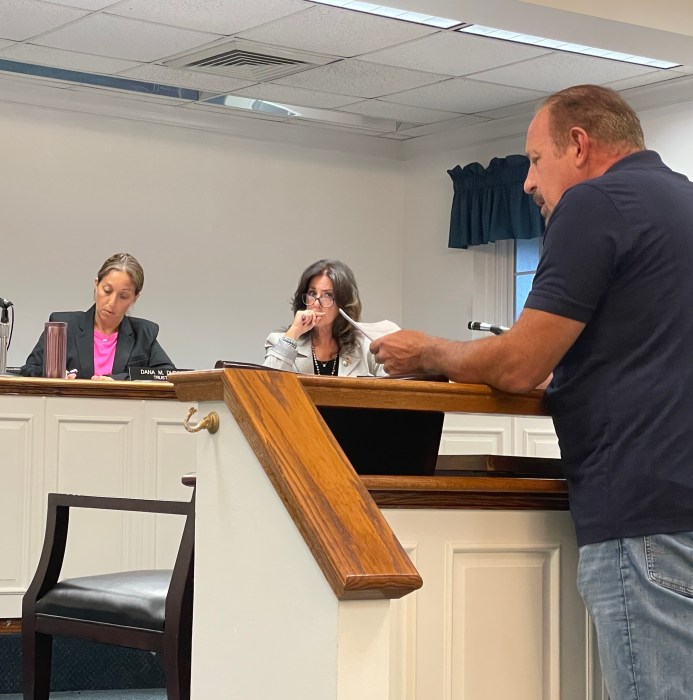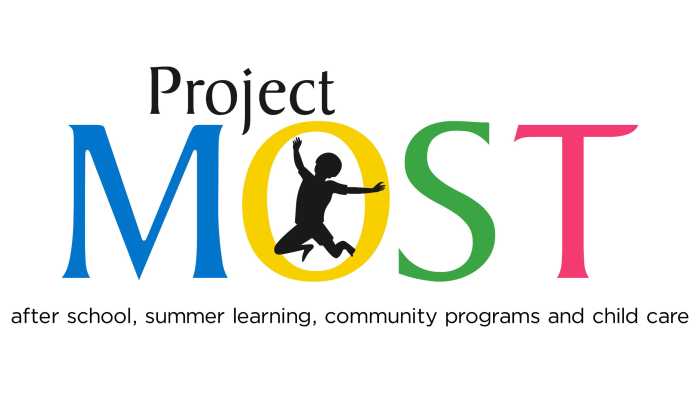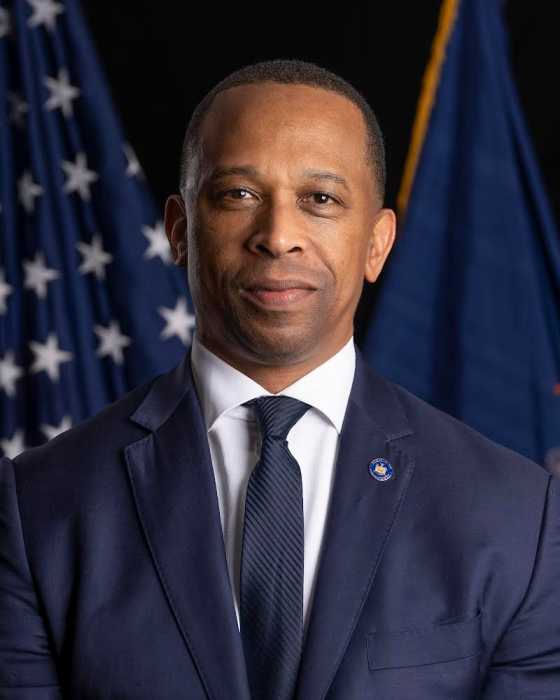Pressure being brought to release body of London Sunday Times war correspondent Marie Colvin of Oyster Bay
The story of the killing of American journalist Marie Colvin is still being written. As we go to press on Monday, Feb. 27, her family is still trying to have her body released by the Syrian government and brought home. The 56-year old journalist known for her reporting in the most dangerous hot spots over the past 25 years, died on Wednesday, Feb. 22 covering a story for The Sunday Times, a Rupert Murdoch newspaper.
“We may never get her back,” her mother Rosemary Colvin said with sadness on Sunday night. “Today was bad. They had two Red Cross ambulances ready to go in but they were being shot at. They can’t send anyone in because of the violence. Today The Sunday Times called to say it was too dangerous. It’s a very bad day for me.”
Her daughter is not the only one they are hoping to get out of Syria. She said on Thursday, some others were waiting at the airport to leave the country but refused to leave without the bodies of Marie and French photojournalist Rémi Ochlik. Mrs. Colvin said, “Two of the French people, a woman with a broken bone and a photographer with shrapnel are injured but are afraid to leave the airport and go to the hospital in Homs for help even though it is on the outskirts of the city, [away from the Baba Amr neighborhood where she died]. The lawyers say they are there illegally – my daughter entered the country through Lebanon – and they could therefore be executed. The country reneged on an agreement to take out the four journalists and two bodies,” she said. “They wouldn’t leave although I begged them to go.”
The family has been trying to get assistance in getting Marie’s body brought home. Monday, Mrs. Colvin will appeal to the Committee for the Protection of Journalists. She was critical of President Barack Obama. She said, “In talking to a Danish diplomat he said at least twice that the Syrians shouldn’t be killing civilians but he never mentioned about my daughter or the French photojournalist that were killed. Journalists are not supposed to be touched. They just report the story. I’m going to ask that committee to talk to President Obama.”
She said, “The French are trying to get their people out. Her sister, Cat Colvin said, “On Sunday, we heard that negotiations have broken down but they will get back to them on Monday.”
They were trying everything they could think of to get help to get Marie back. They were in contact with Senator Kristen Gillibrand’s office and was preparing to call the Community for Journalists on Monday for their help. “I think the government should do more than they are. The U.S. State Department has been terrific in keeping in touch with us, and trying to reach out to President Obama.”
Since America has no embassy in Syria they are working through the French and American Embassies in London.
The Attack in Baba Amr
An article in the Thursday, Feb. 23 issue of The New York Times reported the attack on the building Marie was in, saying, “11 rockets slammed into a single apartment building in Baba Amr, a neighborhood of Homs, the city in Syria that has been besieged by government forces for 19 days.” They reported that when the bombing stopped, the people in the five-story building were running to get out, when a second barrage took place. A video tape on You-Tube shows where Marie and photojournalist Rémi Ochlik fell at the bottom of a stairwell.
Rosemarie said, “I’m afraid of when I see the pictures of her after being blown up by the rockets. She was one of the first two people heading out of the building – and they used huge rockets to blow it up.”
Many Friends
She said, “All the people she knew in London are calling. One invited me to a funeral this morning so I talked to the American Embassy and the paper, The Sunday Times, holding people off for now. We aren’t ready to make decisions. I understand she has lived there for a long time and I understand and we will go there for a memorial service, but we have to bring her home and bury her from our church. That’s where we are now.”
Friends were also calling wanting to know if they could make donations in her name.

Rosemarie said, “People from London were calling and asking what they can do; how they can send money. We had this pressure mostly from people overseas asking what they can donate in her memory, so Cat said we should do something. Cat and Rob [Brusca, family friend] put their heads together and chose the Long Island Community Foundation. I know them from my work with the Centro Cultural Hispanico. One of their big activities is setting up foundations for people. I was concerned about the amount of time it takes to administer that kind of foundation, but they do that work for the foundation. In two hours they had a foundation set up. Then we can fund whatever might have been of interest to my daughter.”
Donations may be made payable/mailed to: The Marie Colvin Fund, at LICF (Long Island Community Foundation); 1864 Muttontown Road; Syosset, NY 11791. [The fund was established by the Colvin family, and will be administered by the LICF. An advisory board selected by Marie’s sisters, Cat Colvin and Aileen Horton, will direct donations to charitable and educational organizations that reflect Marie’s lifelong dedication to humanitarian and, human rights, journalism and education [For more information call 348-0575, ext. 223.]
Thinking of funding in terms of scholarships for the high school and what her daughter might like reminded her of when Marie was home for vacation. “Wes Berry asked if she could talk to the social studies class at Oyster Bay High School, and Dr. Scott was big for it. It was during the 1990s. Marie was giving a talk about the middle-east – and remember those big maps over the board in the classroom. She pulls down the mideast map and says, ‘This is absolutely ridiculous to have a map in an educational institution with these countries on it that don’t exist anymore; not for the last 20 years!’ As a teacher in the school, it was on the embarrassing side but also very funny. Wes told me afterwards he could get any money he needed for maps from then on.”
Appearance on CNN
Rosemarie said, “Assemblyman Chuck Lavine has been a help. I was asked to go in and talk on CNN, tomorrow night (Monday, Feb. 27). At first I said no, I’m really tired. The family was split on what to do. I was feeling tormented by the decision. Assemblyman Lavine asked, ‘Can you do it?’ And I said, yes, I can do it. And he said, ‘Do what’s in your heart’, and that’s when I remembered that is how my daughter wrote. She wrote from the heart. One of the last things she wrote was about a baby, watching him die. All the stories she wrote began with a person.
“He said, ‘If you can do it. Do it, and do what’s in your heart.’ In the bottom of my heart I’ll do anything to get my daughter home. He said, ‘Everyone reads news releases but if you can humanize it’, it will keep the story alive.”
She said it was easier to talk to the press in her home in person, but they were sending a limo to take her to the studio, to be interviewed by Anderson Cooper. He has interviewed Marie and was in Tahrir Square being roughed up by the crowds the same time another woman journalist was physically attacked and Marie was rescued from the mob by some kind Egyptians.
Tahrir Square Incident
Rosemarie said Marie Colvin was in Cairo in January and February, 2011 during the demonstrations against Egyptian President Hosni Mubarak and had a close call with the mob that was being incited against foreigners and journalists.

During the demonstrations in Cairo’s Tahrir Square, Marie was wearing a headdress when she went out into the crowd to interview an Egyptian family who lost their son. Marie explained in a call to her mother that she was saved from threats by the crowd who were angry at journalists when some men eased her into a storefront and then they eased her down near a security gate. “I didn’t know she was there, not until later, when her editor called and said a mutual friend had his cameras broken at the scene. Marie and two other reporters were the only ones left in the hotel she was in on Sunday. At that time, Anderson Cooper was broadcasting from a hideout – he had been attacked by the crowd earlier,” Rosemarie said.
The next day Marie was in the square and it was very peaceful. She had been staying in a hotel looking over Tahrir Square so she could watch everything going on, said her mother.
Meeting the Press
The Colvins invited the press into their home on Wednesday, Feb. 23, when they arrived at their East Norwich home asking for comments on Marie’s death. Rosemarie Colvin said, The reason I’ve been talking to all you guys is that I don’t want my daughter’s legacy to be ‘no comment’. My daughter was a journalist. Two words my daughter would never want to see in the newspaper are ‘no comment.’
“Her legacy is: Be passionate and be involved in what you believe in. And do it as thoroughly and honestly and fearlessly as you can.
“She was murdered,” she said in a rising voice. “I don’t believe you just find a house [to shell]… she was murdered … whatever it is, she was murdered.”
“I’m feeling awful right now,” she said, but to a reporter’s comment she added, “She died doing what she loved.”
Christian Thorn reported on the interview on Eyewitness News on Wednesday night and asked, “What made your daughter so strong and brave?” Mrs. Colvin answered, “I think she was born that way.”
Her mother added during the interviews, “You’re never ready. All these years, all this time, you are never ready for it.” She said after she heard the news, “I was just screaming.”
Her brother Bill said, “She was incredible. I don’t know how she did it. She covered one war after another.”
Mrs. Colvin said, “She was totally committed to what she did and the importance of telling the story and writing it and telling it to the world, no matter what… that was her life. She grew up in the Oyster Bay-East Norwich area. She graduated from the local schools, but she grew up at a time when a lot of things were happening with women; the civil rights movement; the Vietnam war. We were all big protestors- in this family,” she said.
“Everything is different now because it’s instant and you know what’s happening,” said Rosemary. She and her daughter Cat kept in touch with Marie by cell phone and the Internet. Rosemarie said, “Years ago I would only find out how dangerous it was afterwards. Now it was harder and I would know when she was in a place and what’s happening in that place. It’s a lot more of a worry in the last years than it used to be.”
Mrs. Colvin said, “Her boss at The Sunday Times Sean Mayer told me he talked to her yesterday [on Tuesday,] and said she should come out. She told him she was on a story that was important and she wanted to finish it and that she would leave today and that was really hard because – it was just one day.”
Modern Communications
Rosemary said she and Cat, Marie’s sister, were trying to reach Marie for a week and a half before the incident and couldn’t. “Usually the way she de-briefed was she crewed on someone’s boat on the Mediterranean or the North Sea. She learned to sail summers when she was going to Yale. She waitressed at Seawanhaka Yacht Club and sailed with P. James Roosevelt. [An anthropology major, Marie switched to writing in her Junior year after hearing writer John Hershey speak at Yale.]
“Then we found out that the government cut off all cell phone service. The paper (LST) had a sattelite phone but we didn’t try that. It was just a kind of crazy thing. Shortly before we heard the news, Cat and I said it’s funny Marie hadn’t returned our calls because we were leaving messages and that was when we thought she was sailing.”
She added, “Her editor, Shawn Ryan, called her the day before she was killed and wanted to take her out that day and she said she needed one more day to finish her story that she was on – and she would come out the following day – just one more day – she would have had trouble leaving anyway.”
CNN journalist Clarrisa Ward said on Sunday, “The most important thing is an exit strategy. They want to control the narrative so journalists are a thorne in their side.” Arwa Damon of CNN added, “This bunch of journalists is fully committed. No one wants to die on assignment – but none of us will stop.”
Dedicated to Journalism
On November 2012, Marie Colvin spoke at a service she said was, “to remember war journalists and their support staff who gave their lives to report from war zones of the 21st Century.” She said the reason was “to bear witness” and “to tell the truth.” She said, “Journalists covering combat shoulder great responsibilities and face difficult choices. Sometimes they pay the ultimate price. Tonight we honor the 49 journalists and support staff who were killed bringing the news to our shores. We also remember journalists around the world who have been wounded, maimed or kidnapped and held hostage for months. It has never been more dangerous to be a war correspondent, because the journalist in the combat zone has become a prime target.
“I lost my eye in an ambush in the Sri Lankan civil war. I had gone to the northern Tamil area from which journalists were banned and found an unreported humanitarian disaster. As I was smuggled back across the internal border, a soldier launched a grenade at me and the shrapnel sliced into my face and chest. He knew what he was doing.” [In an effort to save those with her, she yelled out that she was an American journalist, showing her credentials and was shot at.]
She questioned if it was worth it, and she answered, “then and now… it is worth it.” She said, “The real difficulty is having enough faith in humanity to believe that enough people, be they government, military or the man on the street, will care when your file reaches the printed page, the website or the TV screen.
“We do have that faith because we believe we do make a difference,” she said and proved with her lifestyle.
Her brother Michael said, “They report very differently in newspapers in Europe. One started their story that today, saying that she was murdered.” He said Marie has left a legacy in Syria explaining, “I saw online a group of young students who are risking their lives to keep the internet open with five or six guys with laptops and a sat phone who keep moving around. If anything, she’s spurred on a whole new group of reporters and journalists. People who are here from CNN were saying, ‘We had to come. Thanks for letting us come in.’”
Her Final Article
In her final article, Feb. 19, 2012 in The Sunday London Times, titled, “We live in fear of a massacre,” she told the story of the “widow’s basement” in a bombed-out building in the besieged Syrian town of Baba Amr in which one woman said she feared if the Free Syrian Army withdrew, the government forces would massacre those remaining. She wrote, “They call it the widows’ basement. Crammed amid makeshift beds and scattered belongings are frightened women and children trapped in the horror of Homs, the Syrian city shaken by two weeks of relentless bombardment.”
Knowing what she would face in Syria, she left Lebanon and said, “I entered Homs on a smugglers’ route, which I promised not to reveal, climbing over walls in the dark and slipping into muddy trenches. Arriving in the darkened city in the early hours, I was met by a welcoming party keen for foreign journalists to reveal the city’s plight to the world. So desperate were they that they bundled me into an open truck and drove at speed with the headlights on, everyone standing in the back shouting ‘Allahu akbar’ — God is the greatest. Inevitably, the Syrian army opened fire.
“When everyone had calmed down I was driven in a small car, its lights off, along dark empty streets, the danger palpable. As we passed an open stretch of road, a Syrian army unit fired on the car again with machine guns and launched a rocket-propelled grenade. We sped into a row of abandoned buildings for cover,” she said, and later reported, “Abdel Majid, 20, who was helping to rescue the wounded from bombed buildings, made a simple plea. ‘Please tell the world they must help us,’ he said, shaking, with haunted eyes. ‘Just stop the bombing. Please, just stop the shelling.’” That was her reason for being there – to tell the world of the suffering going on in Syria to the people caught in the cross-hairs of a revolution.
A Life in London
In London, Marie Colvin was a well-respected and honored journalist and when the British Museum mounted an exhibit in their portrait gallery on “Modern Muses,” Marie was chosen to represent journalism; just as Dame Judy Dench was chosen as an actress. The photo of Marie from the gallery is shown with this story.
Prime Minister David Cameron in a press statement said, “This is a desperately sad reminder of the risks that journalists take to inform the world of what is happening and the dreadful events in Syria, and our thoughts should be with her family and friends.”
Publisher Rupert Murcoch said, “It is with great sadness that I have learned of the death of Marie Colvin, one of the most outstanding foreign correspondents of her generation, who was killed in Syria today while reporting for The Sunday Times.
“She was a victim of a shell attack by the Syrian army on a building that had been turned into an impromptu press centre by the rebels. Our photographer Paul Conroy, was with her and is believed to have been injured. We are doing all we can in the face of shelling and sniper fire to get him to safety and to recover Marie’s body.
“Marie had fearlessly covered wars across the Middle East and south Asia for 25 ears for The Sunday Times. She put her life in danger on many occasions because she was driven by a determination that the misdeeds of tyrants and the suffering of the victims did not go unreported. This was at great personal cost, including the loss of the sight in one eye while covering the civil war in Sri Lanka. This injury did not stop her from returning to even more dangerous assignments,” said Mr. Murdoch.
Rosemary Colvin said, “Mr. Murdoch is very supportive of his reporters. When Marie was hurt in Sri Lanka, he sent a helicopter to medivac her out. The U.S. Marines got her out of the hospital to the airport.”
At the time Mrs. Colvin said, “At first they thought her eye would have to come out, now they are trying a series of three operations to save the eye.” She sustained shrapnel wounds to her eye, head, chest and arms.
At first she had no vision; she was deaf in one ear; her lung was injured – she was stomped on, said her mother. She was arrested and tied up for 10 hours without medical care before the U.S. state department could get her out.
While they couldn’t save the vision in her eye, she was determined to keep it so that one day technology would be discovered that would restore her sight – therefore she wore the patch and not a prosthesis.
She was photographed for the cover of Vogue magazine wearing the patch, with the city of London in the background.
Documentary Story
Marie was featured in Bearing Witness, an A&E documentary on women journalists in war. The film, showed the lives of five journalists during a year in Iraq was aired on the Biography Channel, A&E on May 25, 2005.
On April 25, Marie attended the Tribeca Festival , NYC. After the sold-out showing, a panel of the journalists and filmmakers discussed the film and the challenges of covering war stories. Many of the scenes in the documentary show the danger of their work.
Marie has won numerous awards including two British Press awards and a Courage in Journalism award. During the session she voiced the journalists’ feelings that they try to show that the wars are “ultimately about people.”
A foreign correspondent with The Sunday Times since 1986, Marie interviewed Muammar Khaddafi, seen the bombing of Tripoli and stayed in Baghdad during the Gulf War bombing of Iraq in 1991. She was traveling with the Kosovo Liberation Army guerrillas after the air strikes began. Her work took her to East Timor, Paris, London and she reported on events in Israel and the Middle East, and traveled with Yassar Arrafat. She was lost and then found in Chechnia and rescued by a U.S. helicopter.
Ms. Colvin was banned from Iraq for five years but sneaked into Iran in a potato truck via Turkey. She had written articles unfavorable to Saddem Hussein, said her mother. “Her Iraqi friends were afraid for her, they knew she was on his hit list. In the film you see people who were her guides and translators moving her to a safe house. They knew people were watching her.” Mrs. Colvin said, “Marie was in Kosovo reporting, and she talks a lot about that in the film. On the big screen it is pretty compelling.”

































